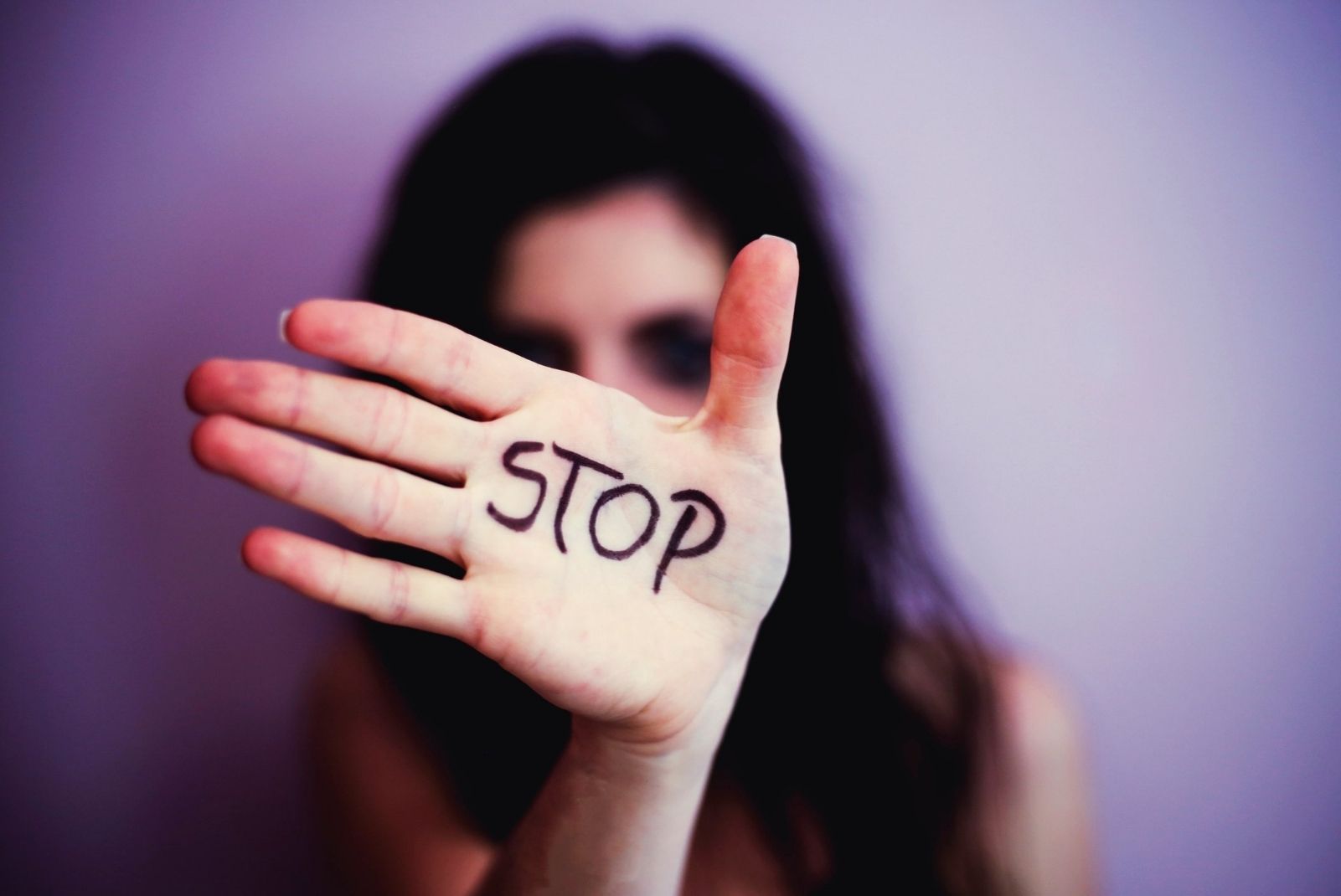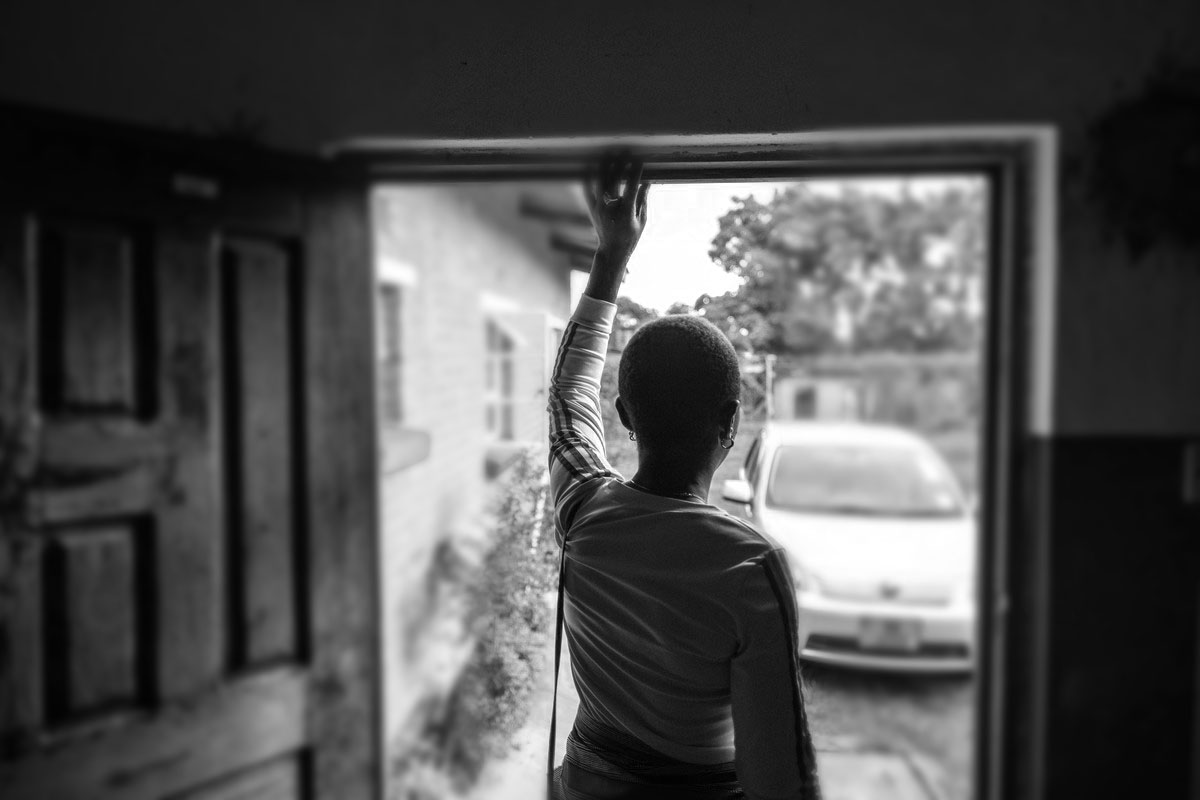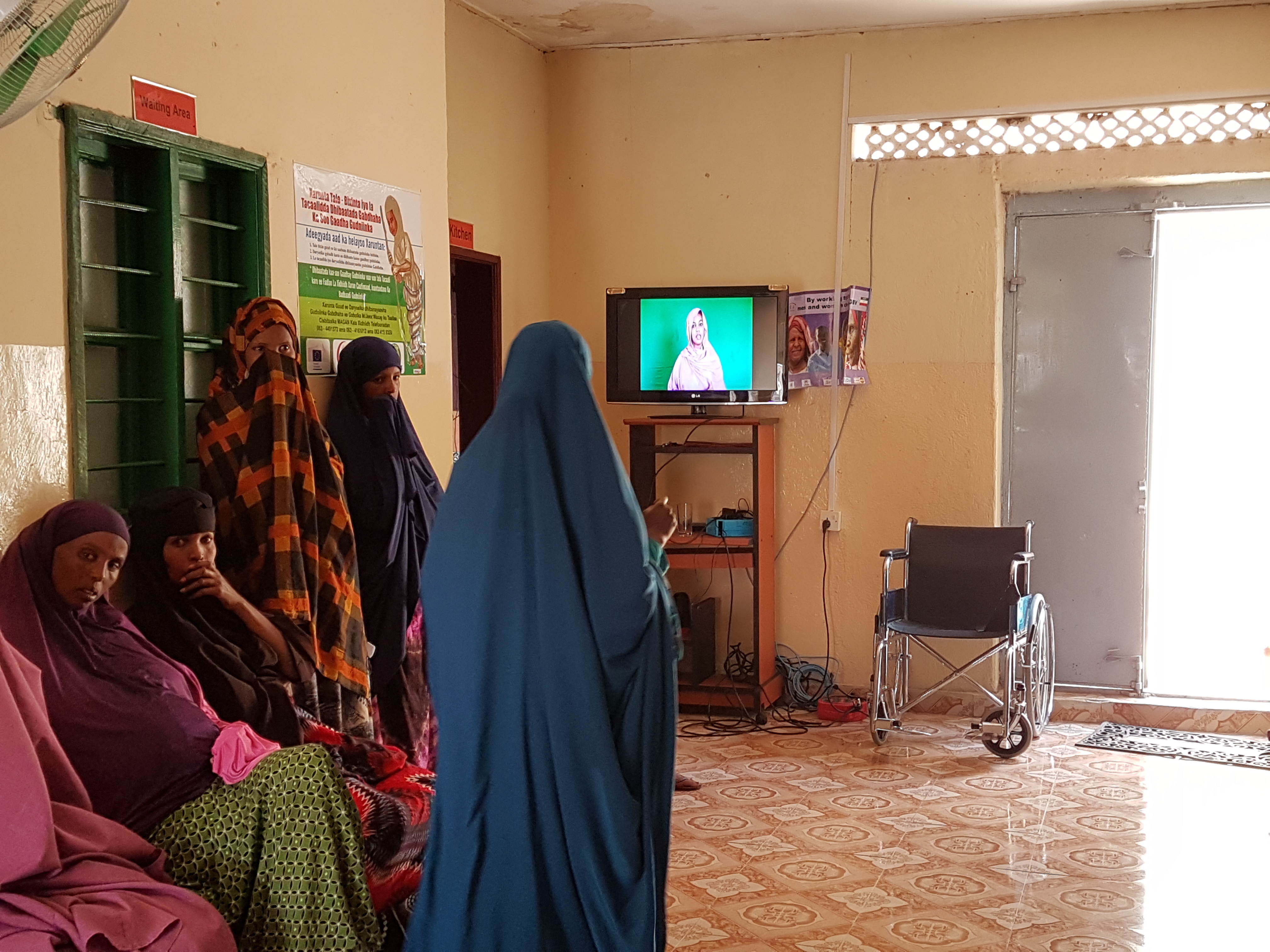
Seri is IPPF's Global Lead for Gender & Inclusion
Articles by Seri Wendoh

16 days, 16 ways: How we can help end violence against women and girls
The 16 Days of Activism against Gender-Based Violence (GBV) kicked off on November 25 – the International Day for the Elimination of Violence against Women, and ends today 10 December – Human Rights Day. Gender-based violence refers to harmful acts directed at an individual based on their gender and is rooted in gender inequality, the abuse of power and harmful norms. Sexual and gender-based violence (SGBV) is a human rights violation and a public health issue. It can include physical, sexual, economic, and psychological violence, as well as threats, coercion, child and early forced marriage, female genital mutilation, and so-called ‘honour killings. Sadly, it is estimated that one in three women (35%) of women worldwide will experience sexual or physical violence in their lifetime. This figure has remained largely unchanged for the last decade. Violence against women and girls also disproportionately affects low-income countries. To mark the 16 Days campaign, here are 16 ways to help end violence against women and girls. 1. Listen to survivors and believe them It takes a lot of courage to share experiences of gender-based and sexual violence, and knowing that their experiences are heard can aid healing and encourage more survivors to speak out. 2. Increase the visibility of young women and girls in discussions concerning their sexual and reproductive healthcare and rights All conversations leading to policy change should be led by and involve survivors. A ‘survivor-centred’ respectful approach to sexual and gender-based discussions can encourage other survivors to come forward without fear of stigma. 3. Stand up against the normalization of sexual violence in all its forms Rape culture is the social environment that allows sexual violence to be normalized and justified. Acknowledging the normalization of sexual violence is the first step to dismantling it, and educating men and boys on positive masculinity, respectful relationships, and consent are just some ways to disrupt it. Leaders respecting, protecting and fulfilling human rights obligations to gender equality can help too. 4. Call for adequate support services Many women and girls lack access to the most basic free essential services for their safety, protection and recovery, such as emergency helplines, safe accommodation, proper police and justice responses, sexual and reproductive health care and psycho-social counselling. Where these services exist, they are underfunded and understaffed. Governments must provide free support for survivors of gender-based violence, including comprehensive training for health providers. Individuals can support campaigns that demand adequate funding for support services. 5. Comprehensive sexuality education Comprehensive sexuality education is vital to teach young people about bodily autonomy, their relationships with each other and to help them understand that freely given consent is mandatory every time. Equipping young people with knowledge about their rights and healthy and safe relationships has a long-term positive effect on their health and well-being. 6. Educate young people but also listen to them Education is essential, but listening to young people’s experiences is also crucial to empowering the next generation. If young people feel heard, they are more likely to want to instigate change. 7. Data is key – utilize it One in three women and girls will experience physical or sexual violence in their lifetime, and learning the statistics means you can share the right information when needed. Collecting and utilising relevant data is also vital for governments to implement successful prevention measures and provide survivors with the right support, especially when reaching marginalised and underserved women. Legislations and policies should also cover comprehensive definitions of all forms of sexual gender-based violence. 8. Take time to educate yourself on gender-based issues Learn the signs of gender-based violence and abuse and how to help someone in need. There is support for survivors of gender-based violence if you know where to look, and action today could help save someone’s life tomorrow. 9. Challenge gender norms that lead to gender inequality Harmful gender norms can lead to gender inequality and, in turn, higher rates of gender-based violence. For example, gender norms can keep girls out of education and higher paid work, limiting their independence, increasing their financial dependence on men and making it difficult to leave violent situations. Gender norms can also leave the voices and experiences of girls undervalued and ignored. By challenging and changing harmful social norms, we can increase gender equality and reduce gender-based violence. 10. Hold yourself and other people accountable Accountability means taking responsibility for your actions and knowing that your actions can directly affect others. Challenge your peers to reflect on their behaviour and speak up when someone crosses the line. 11. Support each other and condemn violence against women Together we stand divided we fall. Supporting women and those working to end gender-based violence is essential to achieving gender equality and ending violence against women; this includes government’s and leaders condemning all acts of violence and discrimination against women. Individuals can support a survivor, share a post on social media or volunteer on a helpline. By supporting each other, we can help create a safer environment for everyone. 12. Donate to and fund women’s rights organizations The COVID-19 pandemic has left many women and girls trapped in closed environments with their abusers. Even a small amount to an organization working to combat gender-based violence can make a difference, especially when so many organizations are struggling with reduced funding but increased demand for services. Donating toiletries, sanitary products, clothes, bedding and toys to a local women’s refuge or support service for women and their children who have escaped domestic violence situations can help too. When people and governments recognise women’s rights organizations as expert partners in the fight to end violence against women, everyone benefits. 13. Use social media Using social media platforms to start a conversation and show solidarity with survivors of gender-based violence is just a small act that can create change in communities. 14. Share success stories, positive role models and solutions that work When people see positive role models and solutions, they feel more empowered to help make a difference too. Positive and diverse representation is also important. 15. Protect women and girls in digital spaces Gaps in criminal laws mean that misogyny is rife in digital spaces, with women and girls subject to online harassment, cyber-flashing, revenge porn and other forms of digital gender-based violence. Laws must be designed to protect women, with proper content moderation systems in place. 16. Understand that it takes everyone to make a change Any successful effort to end violence against women must involve everyone. This includes governments and leaders, and people who commit violence or tacitly condone it. We can’t end violence against women alone.

COVID-19 and the rise of gender-based violence
We are in the midst of a pandemic, and one way to slow down the spread of coronavirus is through implementing a lockdown and quarantine measures. This means confining yourself to your home with your family – which can also include your abuser. Women and children are often the most vulnerable to violence and abuse in the home, and charities are already seeing a sharp rise in domestic violence reports. Pandemics often exacerbate existing inequalities for women and girls, as well as discrimination of other marginalized groups including LGBTQ+ people, people living with disabilities, older people, migrants, refugees and those in extreme poverty. An increase in violence In China, an anti-domestic violence charity in Hubei province reported that intimate partner violence had nearly doubled since cities had been put under lockdown. The same organisation has reported that the police station in Jianli County registered three times more cases in February 2020 than in the same time in 2019. There has been huge increases in different forms of sexual and gender-based violence (SGBV), including intimate partner violence, in many other countries including the UK, Brazil, Germany, Italy, Spain and the United States. In the UK, it is reported that there has been a 120% increase in incidents of domestic violence. Self-isolation for women in coercive or violent relationships means being trapped (often without the means of accessing support) with a perpetrator who may become more abusive when there is no other outlet. Lockdowns also mean medical services and support to people affected by SGBV may be cut off or considered less important in healthcare structures which are overburdened by responding to COVID-19 cases instead, according to UNFPA. Lockdowns and lack of prioritization of SGBV response services mean many women will face forced pregnancies. In turn, restricted access to abortion care facilities or pharmacies that provide medical abortions (i.e. misoprostol pills that can be taken at home) if quarantine periods are extended may lead to unsafe abortions and increased mortality among SGBV survivors. Another fear is that SGBV survivors may also face difficulties accessing contraception for HIV and STI prevention. Lack of timely treatment can put their health and life at risk. Some prevention measures Realising the real danger to women’s lives, some countries have put measures in place to help mitigate SGBV. In China, to tackle the increase in SGBV cases, survivors, activists, and organisations have launched a set of actions using social media to raise awareness and support survivors. Some of the actions included the creation of networks, the publication of online manuals on intimate partner violence, and a hashtag: #AntiDomesticViolenceDuringEpidemic. After the increase of SGBV cases in China and similar issues in Italy, the Ministry of Equality of Spain launched a national plan acknowledging the exponential risks of SGBV due to the lockdown mitigation strategy adopted by the national government. The plan recognizes the difficulties faced by SGBV survivors to seek help in confinement and therefore adapts services to prevent, address, and reduce these risks under the current circumstances. The services include, among other measures, emergency centers for the reception of victims at risks, safe accommodation for survivors, a hotline for information, and an emergency line to send alert messages with geolocation that will be received by state security forces. It has also been announced that an instant chat-messaging system for containment and psychological assistance will be activated. Other initiatives of local governments in Spain, such as the “Mask-19”, have caught national attention and will be replicated in different regions across the country. Survivors of SGBV or women at risk can go to a pharmacy and ask for a “Mask-19”; with this they are sending an alert to the personnel of the pharmacy and protection services will be activated. What can be done? It is clear that IPPF Member Associations have an important role to play by adapting how they provide services and supporting health authorities to adapt theirs. It is essential that SGBV helplines are available and that there is an option for women to access support online whether this is through text message, call centers, or more sophisticated web/app systems, if available. We also want to see access to commodities including emergency contraception or other contraceptive methods and for medical abortions made available for all women to use at home. Finally, we want all governments to recognize the fundamental human right to access sexual and reproductive healthcare – it is a life-saving, essential service for all, especially the most vulnerable and marginalized.

Female genital mutilation (FGM) is a human rights violation
Eliminating Female genital mutilation (FGM) is finally in the spotlight of the international policy agenda. It is part of the United Nations sustainable development goal 5 – to achieve gender equality and empower all women and girls, with a target to “eliminate all harmful practices, such as child, early and forced marriage and female genital mutilation”. The World Health Organization estimates that more than 200 million girls and women worldwide have been subjected to FGM, with approximately three million girls at risk each year. The majority of girls are cut before they turn 15 years old. Female genital mutilation (FGM) comprises of all procedures that involve altering or injuring the female genitalia for non-medical reasons and is recognized internationally as a violation of the human rights of girls and women. FGM is a human rights violation, a form of torture and an extreme form of violence and discrimination against girls and women, rooted in harmful gender norms. The continuation of FGM sustains massive gender inequalities in practising societies, as it limits opportunities for women and girls to realize their full rights and potential. In areas where FGM is prevalent, IPPF clinics are often the first point of contact for affected women. To date, IPPF has put in place various efforts to advance this work, including; the launch and dissemination of a Statement by the International Medical Advisory Panel (IMAP), offering programmatic recommendations to MAs on how to address FGM; provision of technical and financial support to implement FGM-related initiatives in key countries; partnership building. IPPF Member Associations (MAs) play a pivotal role in tackling social norms that hinder meaningful and equal participation in society including, FGM. MAs promote enabling legal environments and facilitate access to services and reparation, provide comprehensive care to women affected by FGM and generate evidence on best practice. "I cannot talk about the bedroom when all I experience is pain and recurrent infection. My husband knows this. We both agree that our daughter will never be cut' and growing understanding from young male peer educators, 'we do not need to cut our daughters at all, not even the 'sunna'. I will marry whoever I marry but she does not need to be cut. If I have daughters, they will not be cut, not at all." Somaliland Family Health Association (SOFHA) and the diaspora women at the frontline of change At a prevalence rate of 98.9% Somaliland has one of the highest rates of FGM in the world. With evidence showing that about 1 in 5 girls who have been subjected to FGM, had the procedure performed by a trained medical professional (in some countries it is as high as 3 in 4 girls). Somaliland Family Health Association (SOFHA), the IPPF MA in Somaliland is at the forefront of advocacy to end FGM. A baseline research carried out by SOFHA and partners showed that FGM is widespread and cuts across all ages and locations, including in urban and rural communities. Implemented with funding support from the Norwegian Development Agency (NORAD), “Empowering a first generation of Somalis to Abandon FGM”, is a flagship initiative that has gained momentum and is catalysing change from the grassroots upwards. Inspired by their belief in social norm change that is from their own experience and that of their peers, many Somali women from the diaspora are returning home to lead the struggle to end FGM. Amal Ahmed and Edna Adan Ismail, SOFHA executive director and president, are some of those leading the struggle by building partnerships with government ministries and civil society organisations (some of whose leaders are also returnees from the Diaspora), in schools and communities and reaching out to young women of the Somali diaspora - to build a movement for social change; "We recognise that to succeed in ending FGM - we must work at all levels and with all players, including religious leaders, young people, mothers and grandmothers; focusing on human rights and gender equality and to speak in a language that is understood". Yet the practice is far from over. Much more needs to be done, to anchor policy into practice. IPPF and Member Associations will continue to fight for change to ensure women and girls can live free from sexual and reproductive coercion and all forms of gender based violence.









